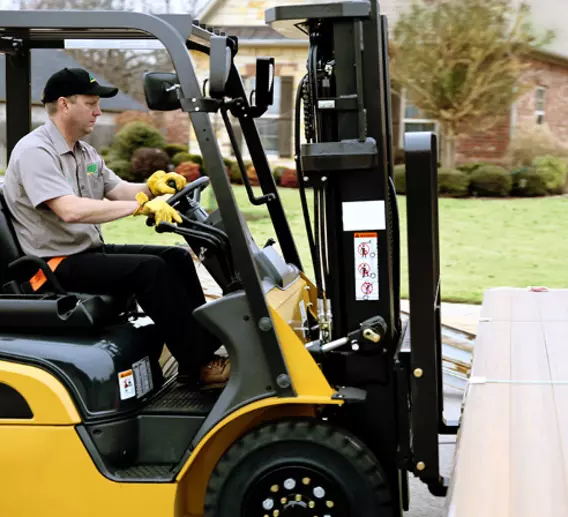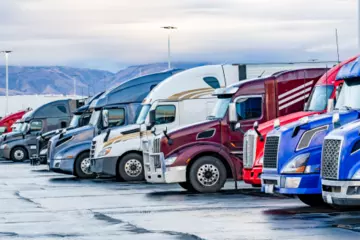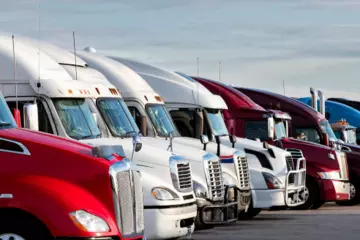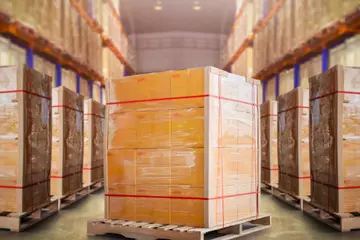What are these extra fees on my freight bill?
Have you ever checked your transportation bill and seen additional charges? This could be due to accessorial fees, which are added to your freight bill for special services or accommodations. While many are a normal part of the billing process and known up-front, some are applied for unexpected situations. Knowing what fees you can avoid (and how others are charged) can help you make decisions that improve your bottom line.

Common accessorial charges
Find a list of standard accessorial fees below and understand what each one means for your loads.
Detention
Because efficient loading and unloading are vital to the flow of shipments, a driver is typically given a two-hour window at origin and delivery for loading and unloading. Anything over that first two hours can result in a detention charge at pick-up or delivery. This results in a per-hour charge being added to your bill.
Learn more about the effects of detention
Layover
Unlike detention, layover is generally a flat fee charged when a driver can’t make a delivery and must wait overnight to complete it the next day.
Lumper fee
This fee is applied to your bill when a third party is needed to unload your freight from the trailer. Lumper fees are typically a consignee requirement and are not chosen by your carrier.
Driver assist
Driver assist is a rate charged hourly for using the driver to load/unload product. When you use your driver for labor, you will have to compensate them for this extra service.
Excess liability
This will be a flat charge applied to your bill, dependent on the value of your load. For most carriers, basic liability is $100,000. Any coverage over that will require you to purchase excess liability and you will be charged accordingly.
Hazmat charge
Hazmat loads can often be challenging to handle and have set instructions on how to load/unload. For this reason, drivers must be hazmat certified, and a hazmat flat fee will be applied. Remember to always verify with your carrier on what additional information must be provided regarding the specific hazardous material you are shipping to ensure all parties remain safe.
Inside delivery
Sometimes part of final mile service, inside delivery is when goods are brought inside the nearest threshold for delivery. A fee is charged because of the complexity of inside delivery – it takes more time and often requires equipment like a pallet jack to offload the goods.
Liftgate service
Sometimes this fee is a requirement of a load and cannot be avoided. A liftgate service fee is applied when equipment hauling your load has to have a liftgate, often times for residential delivery or for delivery somewhere without a loading dock.
Over dimensional freight
When your freight is oversized, you are charged a flat fee depending on how over-dimensional your load is. OD loads take up space that could normally be given to someone else if shipping LTL, and can pose problems with securing, loading and unloading if using truckload.
Redelivery
When a driver is unable to deliver due to the receiver and has to go back to the destination to complete delivery at a different time, then a redelivery fee is charged. This flat fee takes into account the driver’s time and is often seen in big box store warehouse deliveries.
Residential delivery
Because of the excess challenges associated with residential deliveries including the lack of loading dock and navigating residential streets, a residential delivery fee can be applied to your load.
Stop-off charge
When booking a multistop load, keep in mind that a stop-off charge will be applied. A stop-off fee is charged when there is more than one stop for delivery or pickup and is a flat fee charged usually per additional stop.
Straps and tarps
Although straps and tarps are usually provided by the carrier, sometimes they do not have enough to secure your freight and they will charge a straps and tarps flat fee. Paying this fee ensures that the driver will have the proper equipment to secure your load and safely deliver it.
Team drivers
When you request fast transit, team drivers are usually involved. Team driver fees are applied when team drivers are required for a load. A pair of drivers take turns driving while the other’s hours are reset so they are able to drive the load in half the time. To compensate both drivers, a team driver fee is applied.
Get help understanding your full truckload bill
Shipping LTL? Find more on LTL freight pricing
How to avoid additional charges
Some charges may be required for your load, like liftgate service or residential delivery, but others can be avoided. Here’s how you can work to avoid additional accessorial fees:
-
Be proactive. By anticipating your needs and communicating them clearly, you can avoid unknown fees.
-
Communicate. Proper communication with your provider about things like correct delivery and pick-up appointments can help you avoid fees like detention and layovers.
-
Stay visible. Tracking your shipment in real-time using a provider’s knowledge or their website will allow you to decide about a load’s timing and help you avoid unnecessary charges at delivery.
Trust the experts and don’t get overcharged
Proper communication of your needs is easiest when you work with a trusted provider. With over 100 years of experience in the industry, ArcBest can help you with a full suite of shipping solutions and walk you through each accessorial fee you may be charged. Contact ArcBest today to find your trusted partner and start saving money on avoidable accessorial charges.
Learn about our truckload and less-than-truckload solutions.







